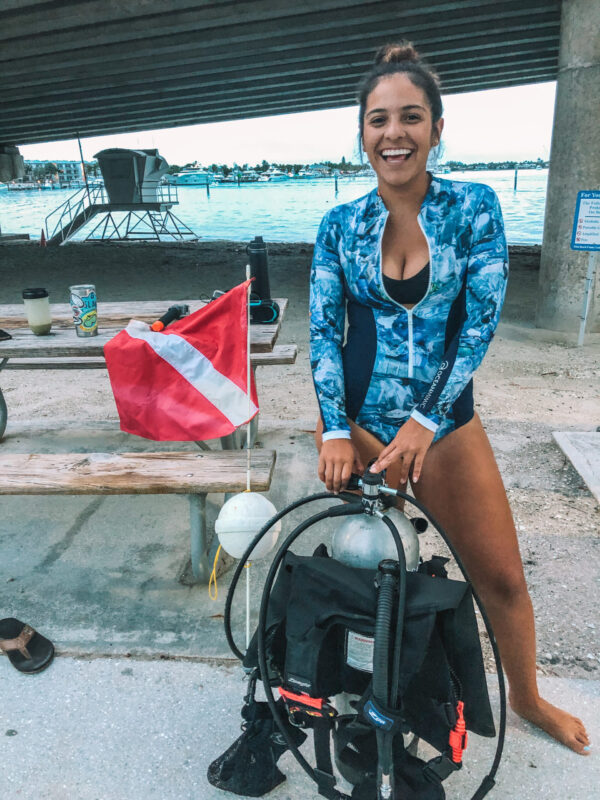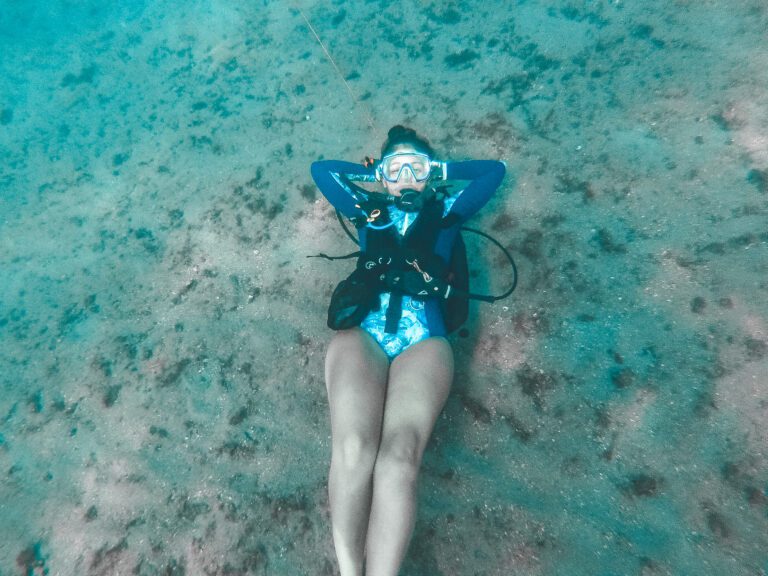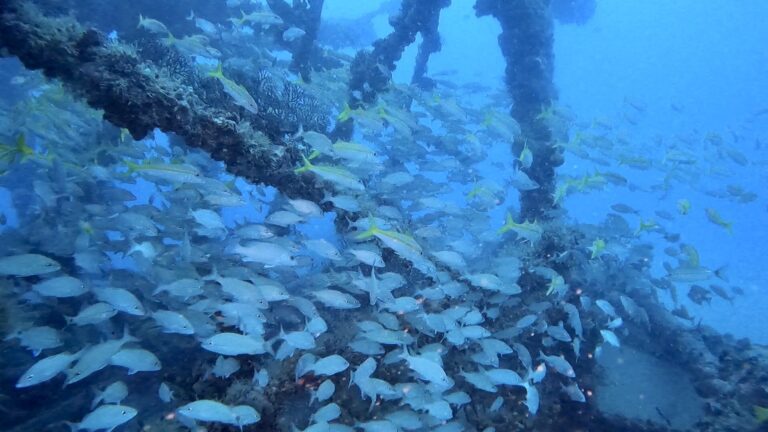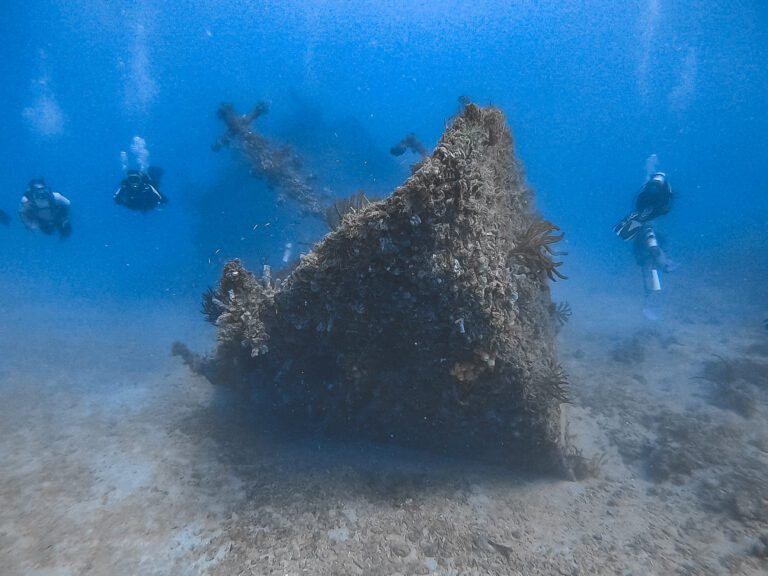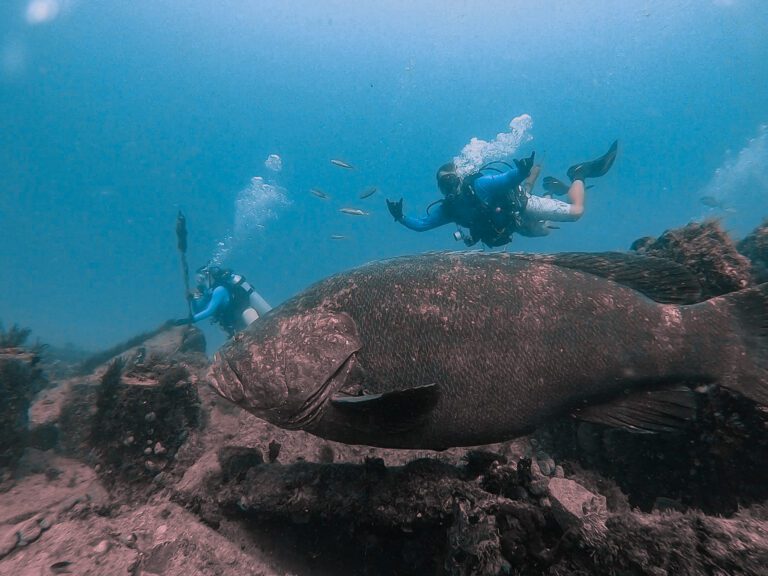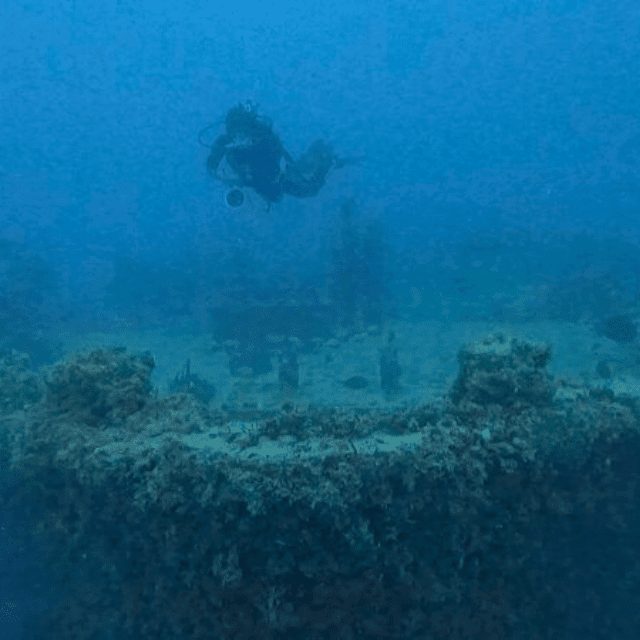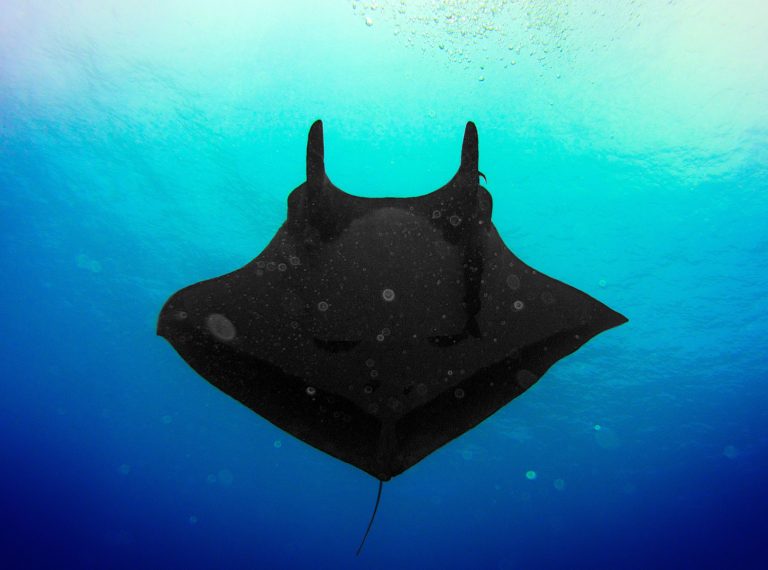What Gear Do You Need for Scuba Diving?
From the outside looking in, the gear alone makes scuba diving appear so intimidating. However, that notion couldn’t be further from the truth. If you’re interested in getting into scuba, start here to better understand what gear you need for diving!
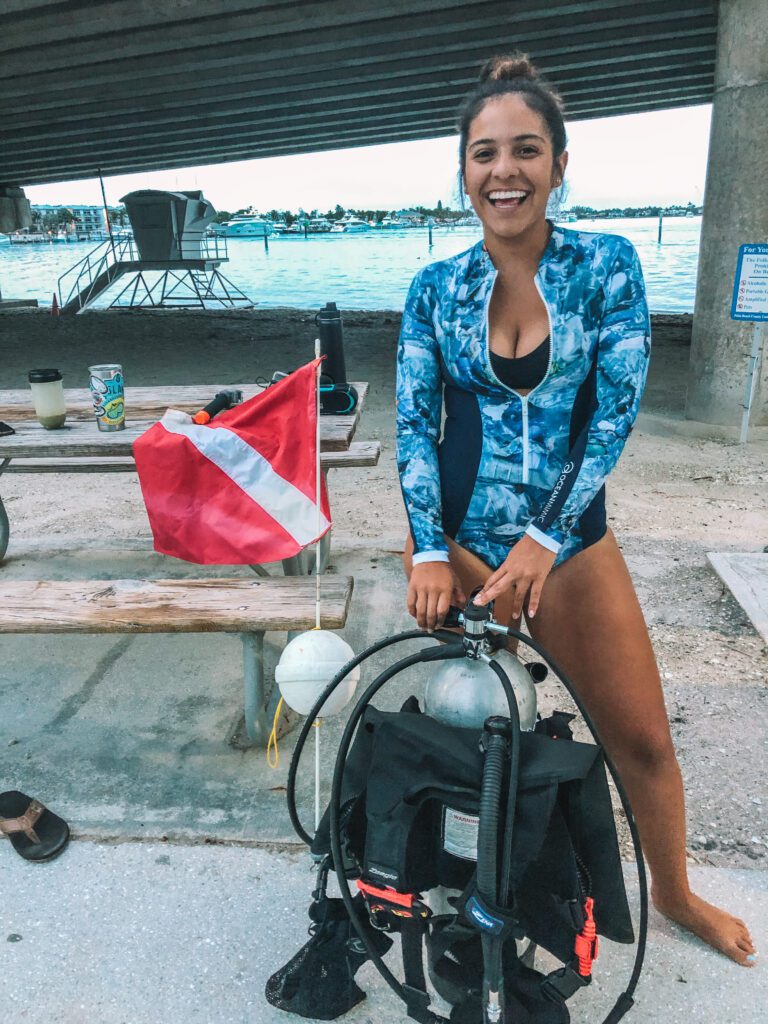
The Gear You Need for Scuba Diving
You’re a new open water diver, a new student, or contemplating on getting into diving. Not sure what gear you should start with? This article breaks down each piece of gear you’ll need to be familiar with as a scuba diver.
Although, contrary to popular belief, you don’t need to buy all these items at once. In fact, we recommend you take your time, get some dives under your belt, and test out gear before investing money into the bigger ticket items.
We’ve conveniently separated the necessary scuba gear into three categories based on when it’s best to purchase:
- The Starter Pack: What scuba gear to start with
- The Regular Diver: Scuba gear to invest in as you dive more
- The Everyday Diver: What scuba gear you need as an avid diver
- The Gear You Need for Scuba Diving
- The Starter Pack: What scuba gear to start with
- The Regular Diver: Scuba gear to invest in as you dive more
- The Everyday Diver: What scuba gear you need as an avid diver
- Should you buy tanks?
- Scuba Gear Final Thoughts
- Enjoy this Post? Pin it!
- Read More About Scuba Diving Gear
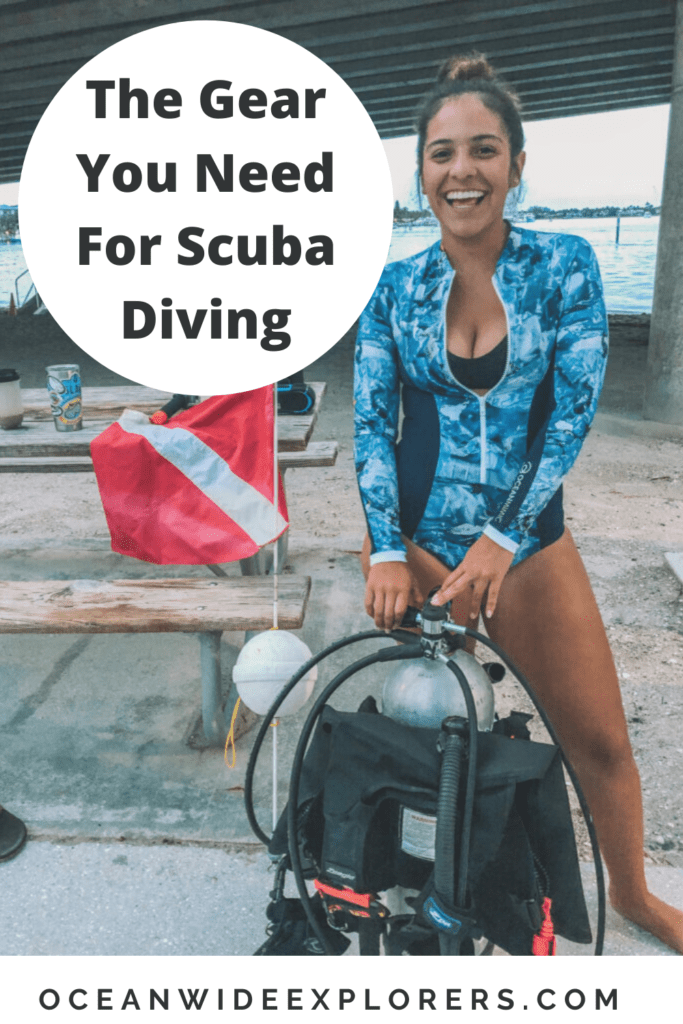
The Starter Pack: What scuba gear to start with
The starter pack consists of mask, fins, snorkel, and dive booties. If you’re about to start a scuba class or if you’re a new open water diver, these few items are all you need to start diving!
Why? Well, you don’t know if you’re going to like diving yet (my bet is you will, though)! But still, dive gear is not cheap and limiting your gear to cheaper, basic items is a great place to start. Besides, most shops, resorts, charters, or dive schools will provide you with the big ticket items for this exact reason if you were to go diving with them.
At the very least, if you decide diving isn’t for you, you can always use this gear for snorkel adventures on your own!
Mask
Probably the first piece of gear you’ll ever buy for diving! So, I’ll let you in on a little secret: there’s NO need to buy an really expensive mask. Obviously, buy quality and not a dollar store mask (it needs to be tempered glass). But, the most important thing with a mask is that it fits your face well.
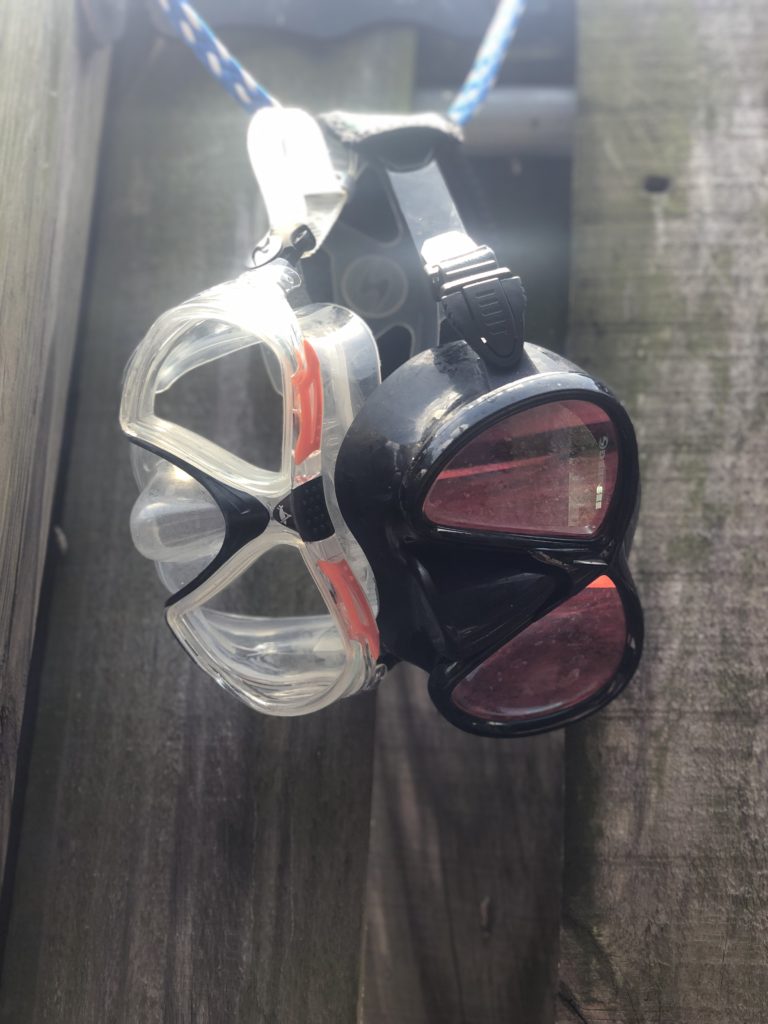
Fins
How are you going to get anywhere without these bad boys? I will say, quality fins do matter. Fins vary by shape, structure, and size, all of which dictate their purpose. However, for recreational diving purposes, stick with a flexible and easily fitted fin.
We recommend those with an open heel, spring strap as opposed to closed heel. Why? It’s easier to get the fin on and off, can be used more easily by different people, and adjust easier to growing feet.
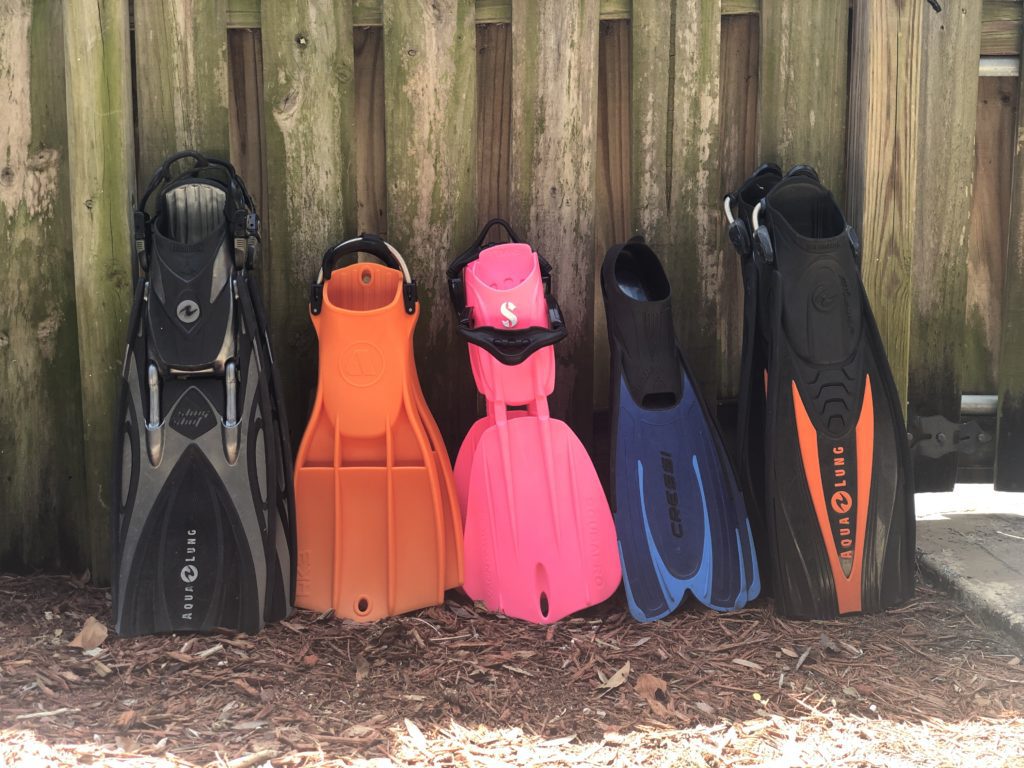
Snorkel
Quite possibly the most critical component of snorkeling? I mean, how will you breathe while looking down at all the cool stuff below?!
However, for diving, snorkels provide you with a means to breath on the surface that’s not your air tank (think pre-dive at the surface, emergencies, etc.) Unless you want to be fancy, just stick with something basic.
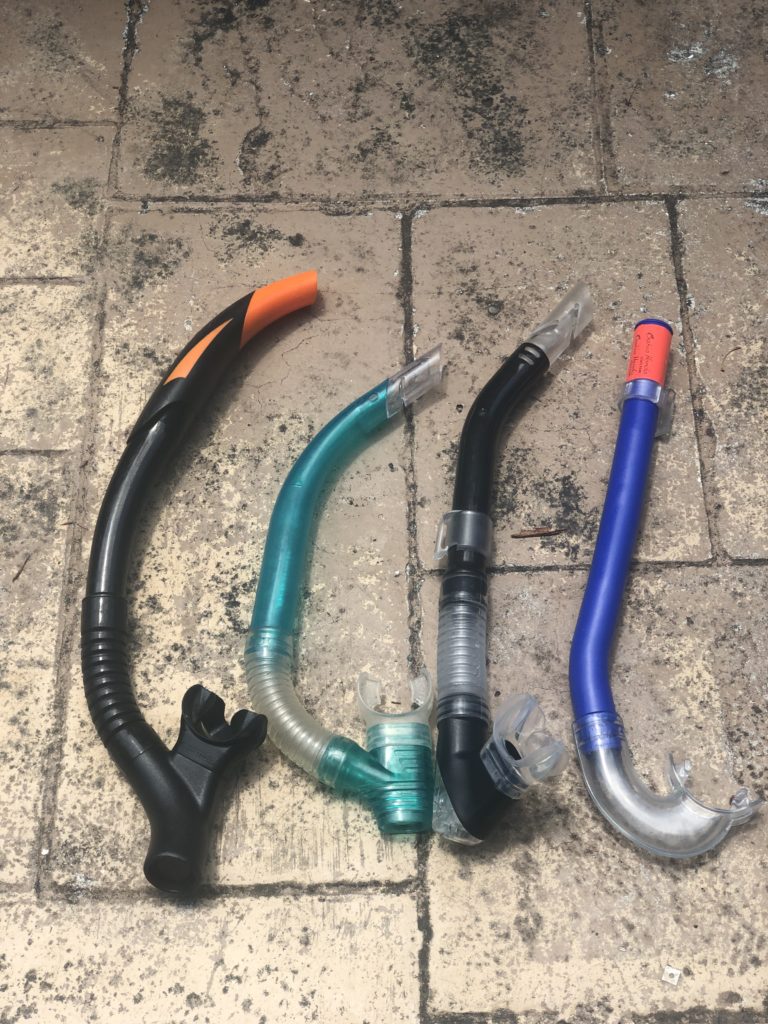
Dive Booties
We included dive booties in our starter kit as good dive fins typically require them. It is possible to get fins that don’t require booties, but I’d steer away.
Why? Dive booties can provide protection for those delicate feet of yours on the beach, boat, or any other rough surface. Not to mention, those pesky things called blisters…
Just make sure you try the booties on with your fins!
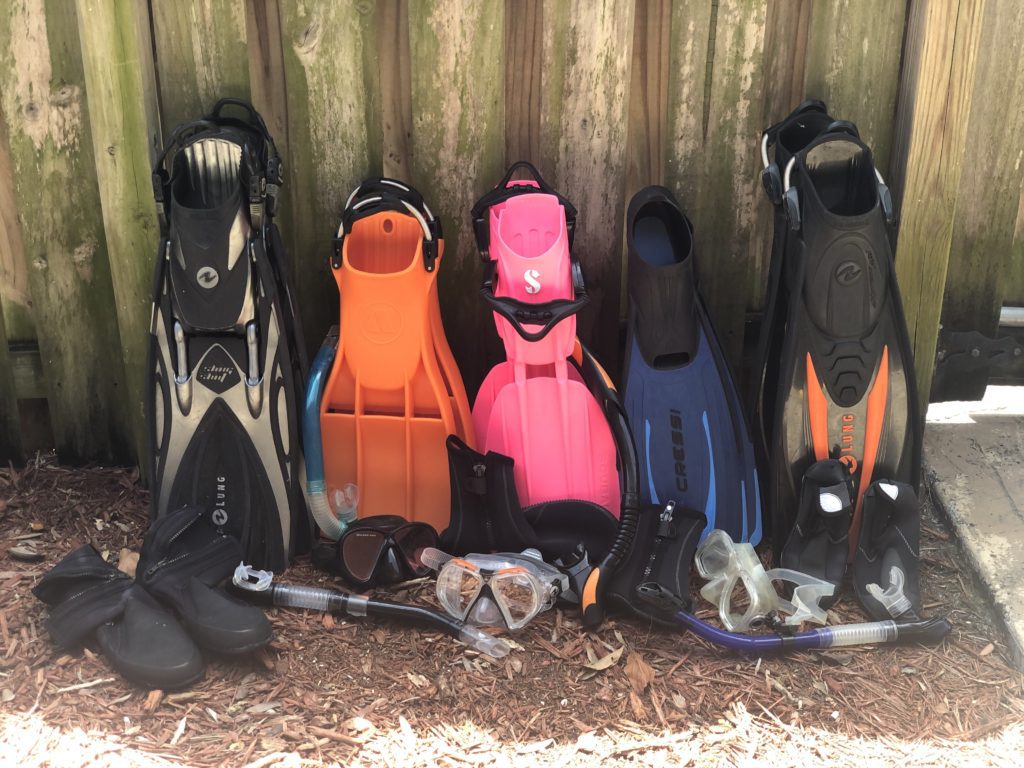
The Regular Diver: Scuba gear to invest in as you dive more
For open water divers seeking to expand on their skills! We had some debate on what could be included here, but the consensus is that the ‘Regular Diver’ gear consists of a dive computer and a wetsuit.
Why these two? Well, if you’re traveling or on vacation, you’re likely using a dive shop’s gear. A good option for a new diver, but you won’t have a consistent means to log your dives (very important). Hence, a dive computer! Owning one allows you to easily record your data no matter where you are in the world.
As for the wetsuit, well, let’s just say it’s not uncommon for people to pee in the water…I think you can figure out the rest. This realization prompted me to immediately purchase my own wetsuit! If you’re starting to dive often, maybe you should do the same!
Dive Computer
A dive computer records all sorts of data during your dive – depth, air consumption, deco limits, and more. It’s a critical component for safe diving!
Many brands, shapes, and sizes of computers exist providing you with all sorts of data. They range from basic to technical (which have minimal purpose for the recreational diver). Best to stick with a basic model to start out with.
It is recommended you carry two dive computers (in case one fails). However, it’s not the end of the world if you only have one. After all, they can get pretty pricey.
We use Aqualung’s i200c – it’s a stylish alternative to the typical bulky computers often seen.
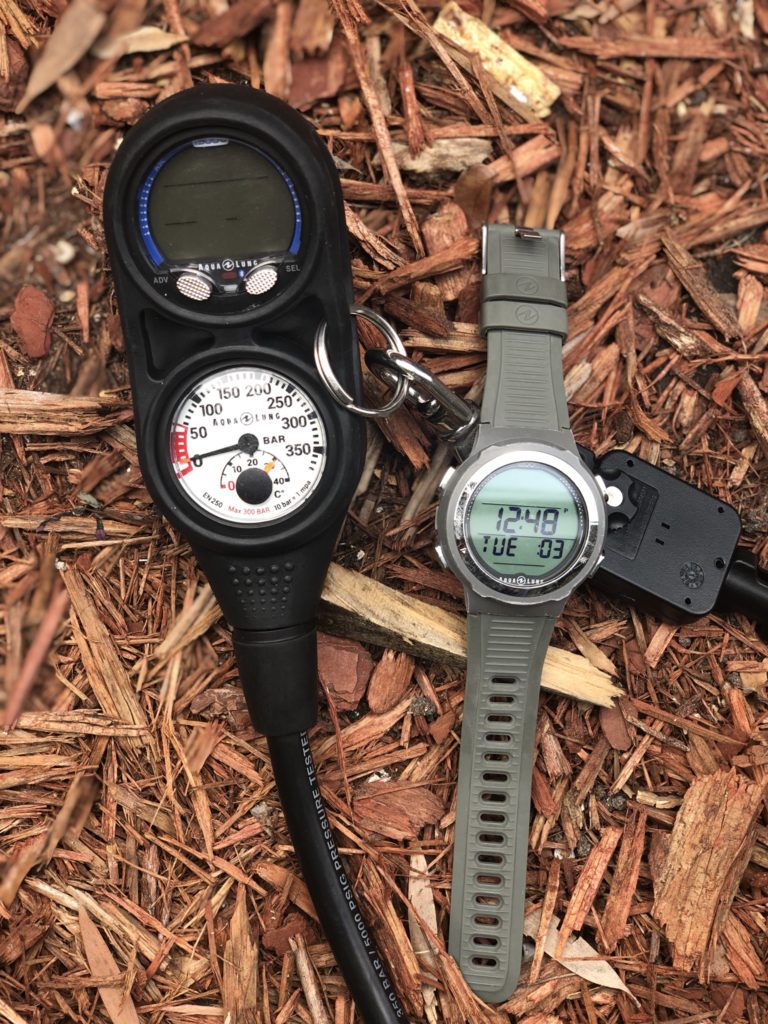
Wetsuit
Wetsuits are used to keep you warm during your dive! The thicker (more mm) = the warmer you’ll be. In other words, thick (high mm) wetsuits are for cold environments, and vice versa.
Wetsuits are pretty universal too. For the first few years, I actually used a surfing wetsuit while diving. It did the job quite nicely but I eventually bought a nice 1 mm to keep me snug during my warm water dives here in South Florida!
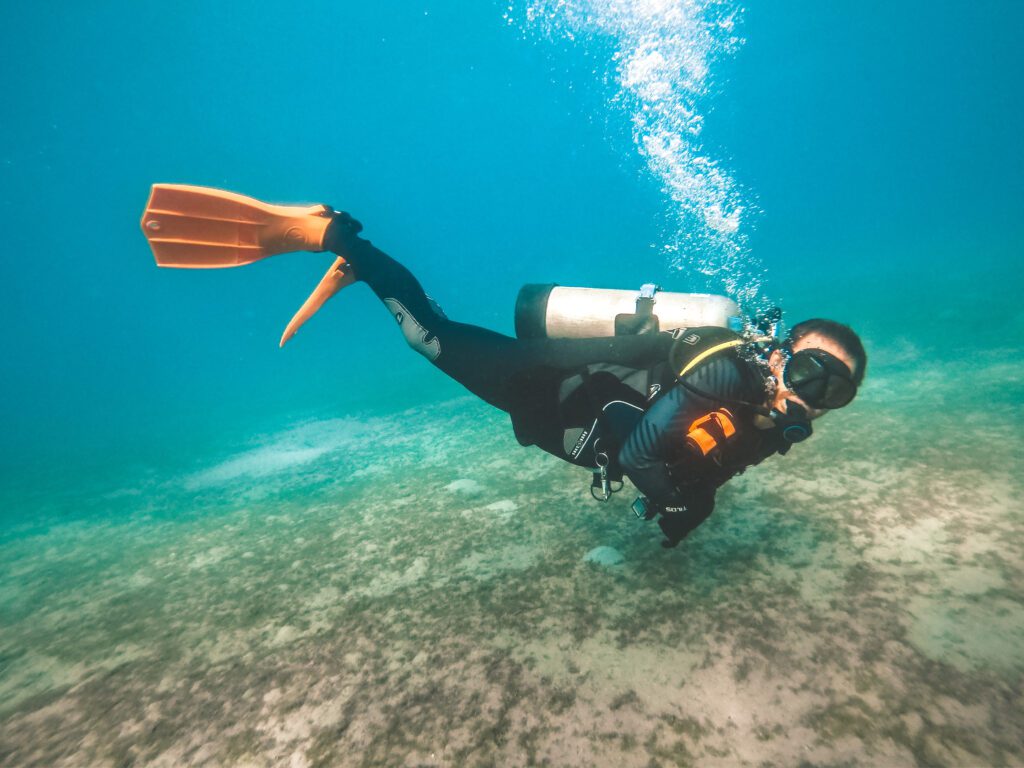
The Everyday Diver: What scuba gear you need as an avid diver
You’re practically a fish. They can’t get you out of the water and now your every day life or all your vacation time is spent diving. Not a bad life, eh? That’s when we would recommend buying these next pieces of gear!
Typically, your BCD, regulator, octopus, and gauges are some of the more expensive pieces of equipment – that’s why we made these purchases last. Another reason? All the charters and dive shops you’re diving with likely provides a lot of this stuff for you. Giving you a great opportunity to test out all sorts of equipment before making that big purchase!
So what’s the benefit of owning your own? To personalize, of course. After so many dives, you become more aware of yourself and your gear while underwater. It’s extremely beneficial to know your gear inside and out. That way you can detect any defects, better your neutral buoyancy, and ultimately, become a better diver.
Buoyancy Control Device (BCD)
Aaah, the BCD. This is the jacket that allows you to control your movement underwater. Comfort and a proper fit is critical!
It is quite possibly the largest SCUBA purchase you’ll ever make. Meaning, it’s extremely important to do your research here!
By research, I mean testing out all sorts of equipment from different shops. Know what you’re getting and how it fits. The best research is to physically test it out underwater!
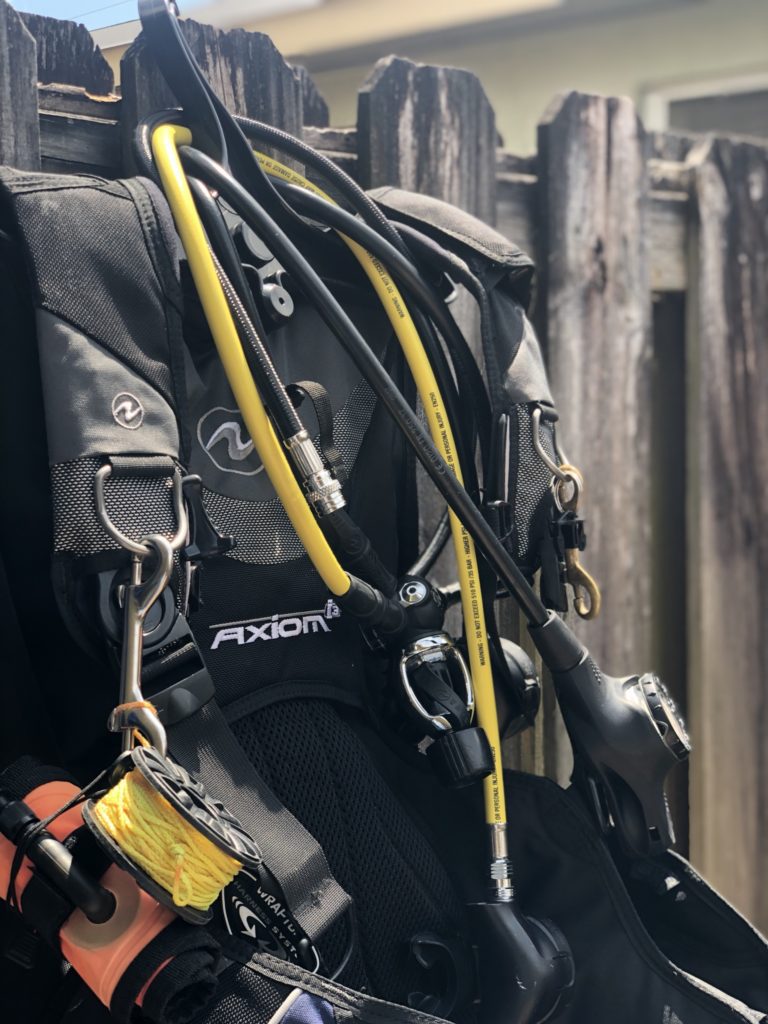
Regulator
Or also commonly referred to as your first and second stage. This ranks right next to your BCD as quite possibly the second largest purchase.
The regulator is the hose you breathe through – the first stage (attaches to the tank) and second stage (what you put in your mouth) both lower the high pressure in the tank to a comfortable level for adequate breathing.
Same thing as the BCD: do your research by trying different models out. Thousands of regulators are out there but don’t feel overwhelmed (they all let you breathe underwater).
What I looked for when purchasing was an Auto-Closure Device (ACD), among a few other specs. An ACD prevents water from rushing in when detaching the first stage from your tank.
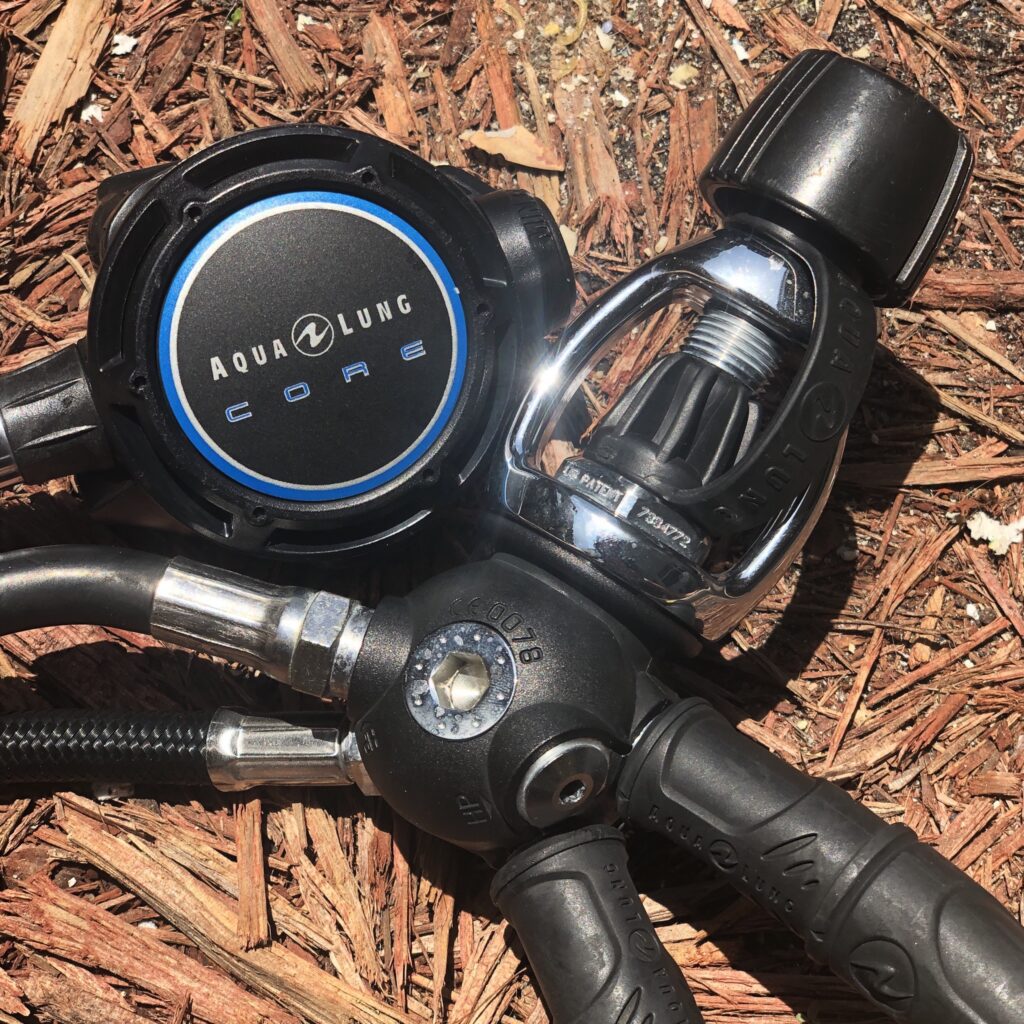
Octopus
Octopus? Isn’t that an animal? Not in scuba diving!
That oh-so important yellow thing. Your octopus is your emergency breathing hose – used when you can’t access your regulator or your dive buddy needs some serious help.
Although you can purchase any octopus, I simply bought the exact matching model as my regulator. Easy-peasy. That’s right, your octopus and regulators are indeed sold separately. Seems kinda stingy, right? Yea, I think so too.
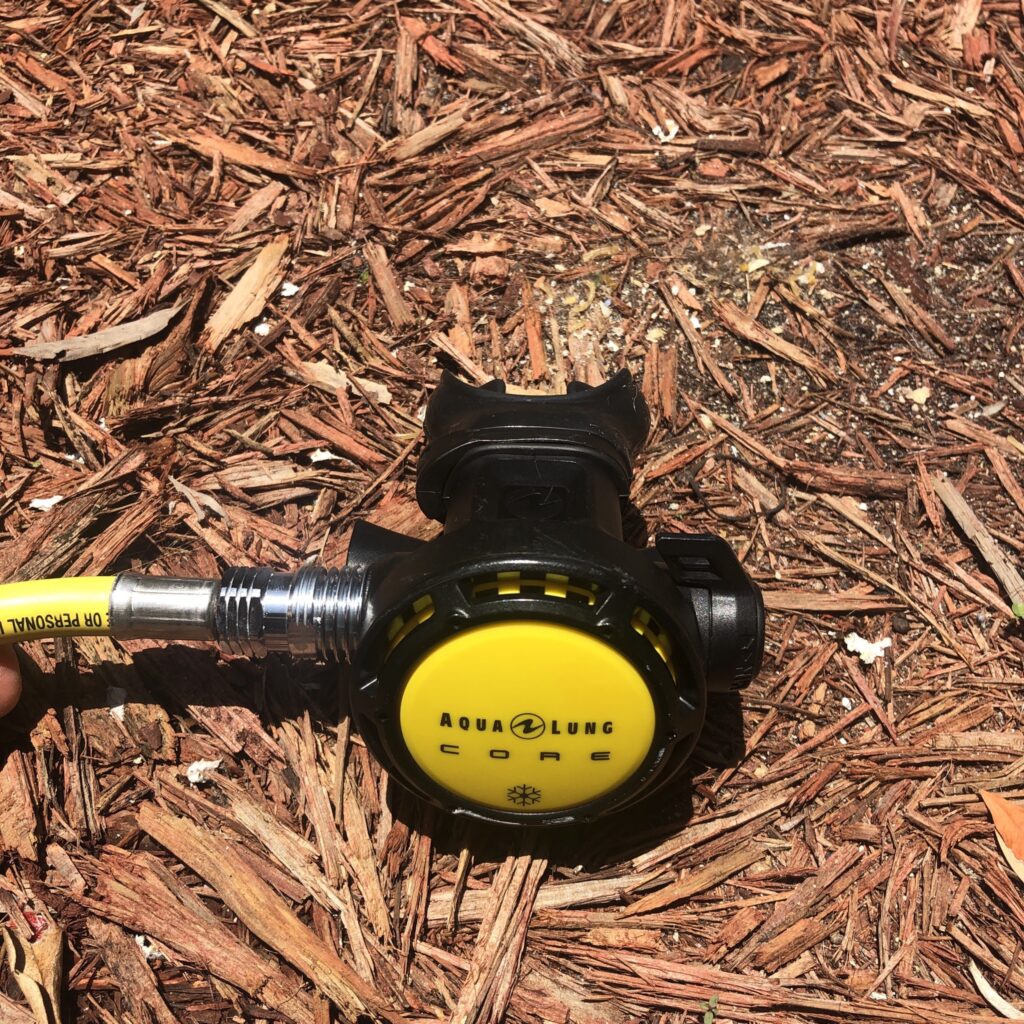
Gauges
How else were you going to know how much air you have when you’re down below?
Personally, I like having my gauges attached and pressurized directly from my tank.
Some newer models have a sensor that connects to your dive computer via blue tooth. For me, I can’t even get blue tooth to work in my car, let alone 100 feet below sea level. Call me old school, I suppose.
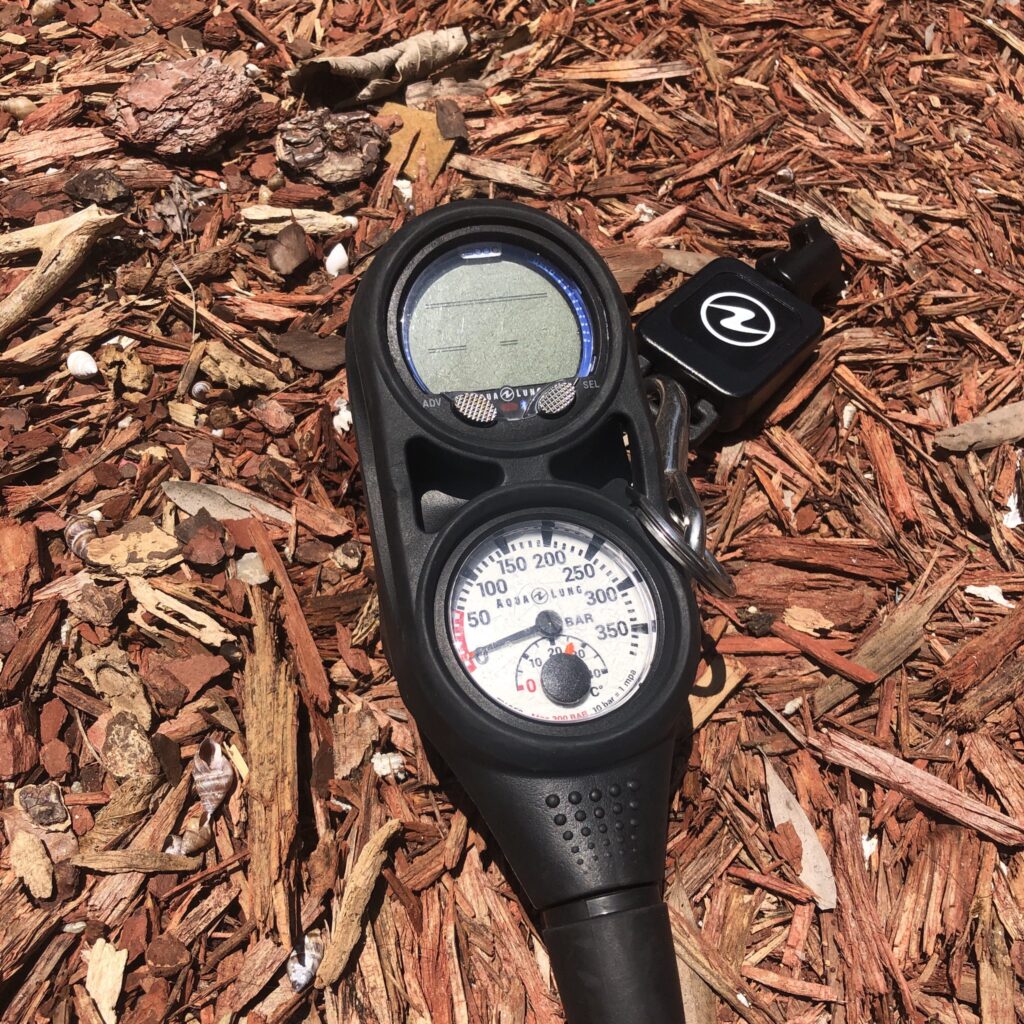
Should you buy tanks?
For a quick answer: no, you shouldn’t. Especially when you’re starting out. However, at some point in your diving career it does become beneficial to own your own. A topic we discuss further here.
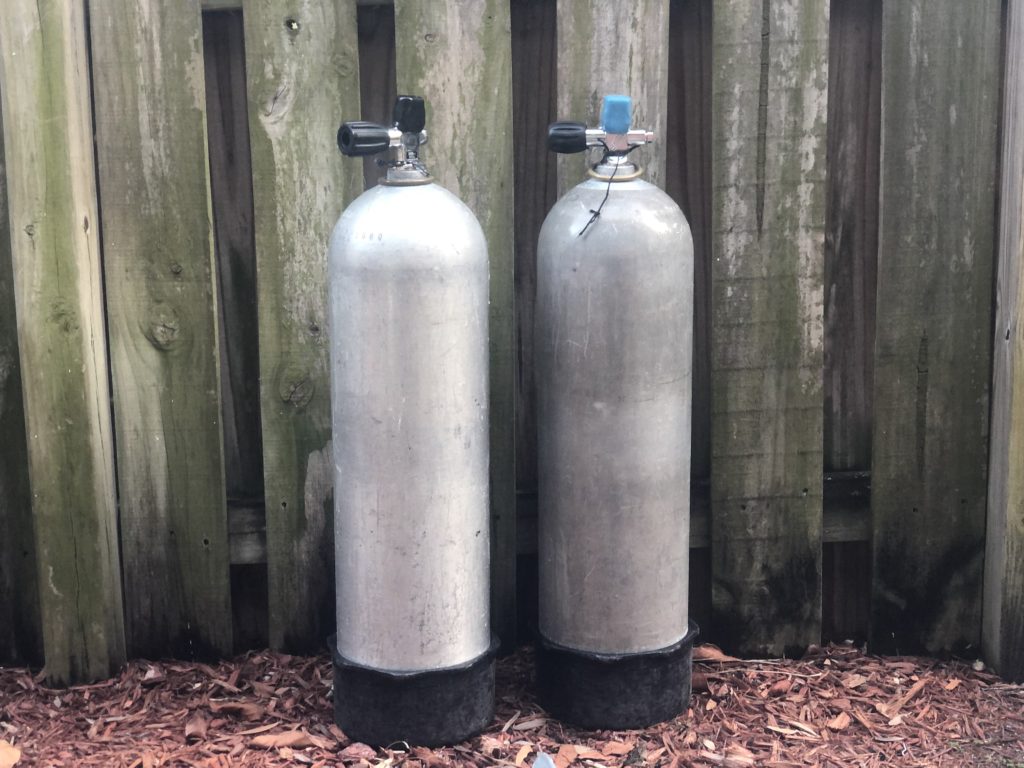
Scuba Gear Final Thoughts
The most important takeaways:
- You don’t need to buy all of the necessary scuba gear at one time. It’s better to purchase in stages.
- Do your research and test out gear.
- Comfort and proper fitting is essential!
- Personalization is important too. Look good, feel good, dive good.
- But of course, safety is most important!
Enjoy this Post? Pin it!

Read More About Scuba Diving Gear
We hope you enjoyed our post on what gear you need for scuba diving. Hopefully you’ll find it useful on your next adventure! Here are a few more ocean-loving articles we think you should read next:
Have any questions about the gear you need for scuba diving? Leave a comment below!

